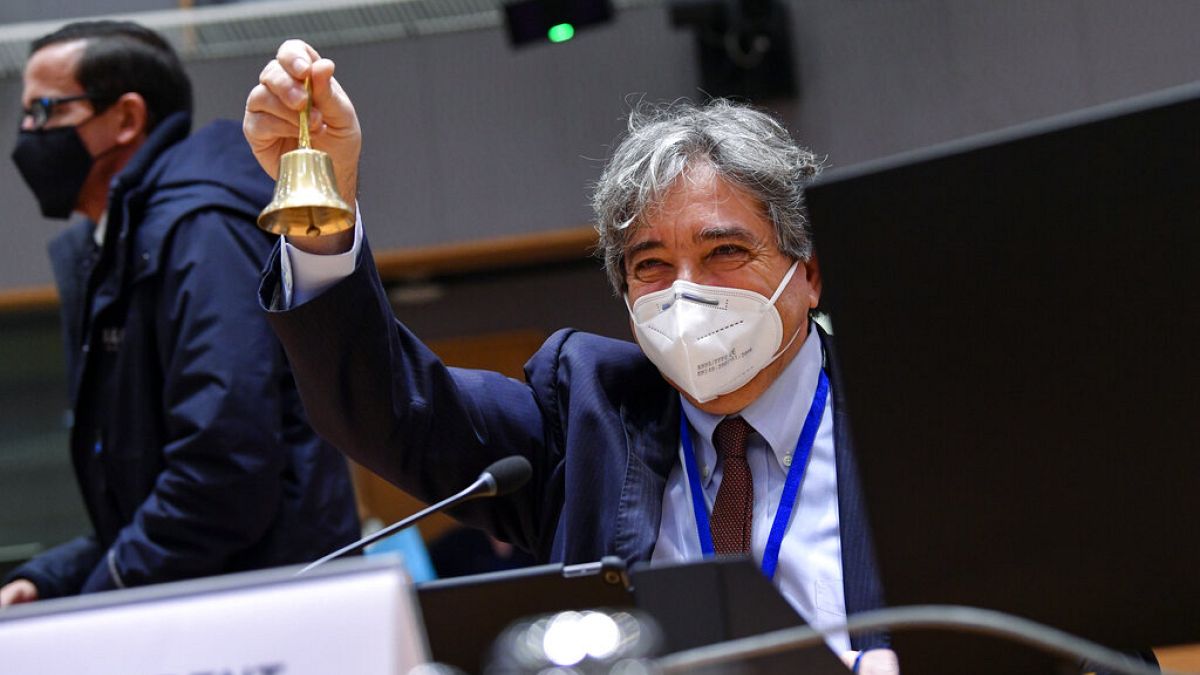The European Commission is now preparing to lead negotiations with the UK on behalf of all members states in order to decide how much fish EU fishermen will be allowed to catch.
EU agriculture and fisheries ministers have begun negotiations on the fishing quotas that will govern the relations between the bloc and the UK in the coming years.
According to the free trade deal agreed on Christmas Eve, the European Union is set to give up 25% of its current fishing quotas in British waters. This transfer of rights will take place gradually over a period of five years, known as the "adjustment period". Fishing access for EU fleets will decrease each year until reaching said 25% threshold in June 2026.
In the meantime, provisional catch limits will apply. The European Commission is now preparing to lead negotiations with the UK on behalf of all members states in order to decide how much fish EU fishermen will be allowed to catch.
The process will try to "find a balance between the preservation of stocks and the welfare of the fishing communities," Portuguese Minister for Maritime Affairs, Ricardo Serrão Santos, told Euronews. Portugal holds the rotating EU Council presidency.
"It will have to be done before approving a budgetary reserve for adjustments to Brexit that will help mitigate the impacts in the fisheries sector and fish farming. But we have to realise that the support to these problems is really complex and it is even more difficult because of the COVID-19 pandemic," he added.
Following the informal ministerial meeting in Brussels, Virginijus Sinkevičius, European Commissioner for Environment, Oceans and Fisheries, said that the provisional catch limits currently in place should be replaced by definite quotas before the end of March. The commissioner also announced that a proposal to increase some of the provisional limits had been adopted.
EU and UK fishing industries facing uncertainty
For the time being, fishing fleets in coastal EU countries are operating under temporary provisions. Their work depends on the outcome of the negotiations between the EU and the UK, which are likely to last several months. Fisheries were one of the most controversial topics in the years-long negotiations that resulted in December's free trade deal.
In Belgium's fishing fleet, consisting of around 400 seamen, is waiting for answers. "We are used to landing our fish at the British ports and trucking it to the Belgian auctions for sale but that is something that because of bureaucracy is no longer possible to organise," Emiel Brouckaert, chief executive at Rederscentrale, a Belgian fishermen association, told Euronews.
"We are looking for possibilities and fishing grounds, both Britain and in the EU," he added.
Brouckaert went on to say spots that were normally exploited later in the year are being visited now because "we do not want to take the risk of being stuck with our fresh fish in the UK".
Those on the other side of the Channel are also feeling the pinch. British exporters have raised the alarm about a collapse in prices due to export blockages. UK fishing companies have complained that they had fish rotting because it was not delivered in time to some European markets. They also voiced disappointment regarding the quotas arrangement.
"Small buyers are grouping consignment together and there is an enormous amount of paperwork associated with that," Barrie Deas, chief executive at the British National Federation of Fisherman Organisations, told Euronews.
"Selling and exporting fish to the European Union is one of the immediate problems and we also lose the ability for in-year swaps between groups and we will actually, for some groups, have less quota in 2021 then we had in 2020."
